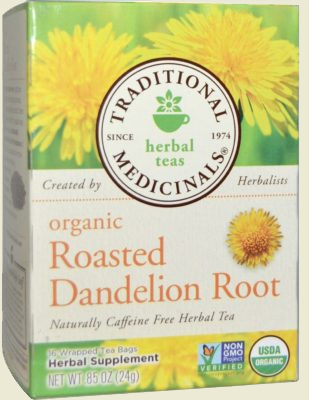Can You Eat Dandelions?
The potential health benefits of dandelions in your diet

Dandelions pop up overnight to blemish a perfect green lawn and crowd out the petunias in your flower garden. But instead of going to war with the ubiquitous yellow weeds, you might want to welcome them into your kitchen.
“Dandelions are herbs, and herbs have many health and nutritional benefits,” says registered dietitian Nancy Geib, RD, LDN.
Why should you add them to your diet? Let us count the ways.
Nutritional benefits of dandelions
Dandelions pack a whole lot of vitamins and minerals into a small plant. “They’re probably the most nutritionally dense green you can eat — outstripping even kale or spinach,” Geib says.
Dandelion greens, in particular, are a great source of vitamins and minerals such as:
- Vitamins A, C and K.
- Folate.
- Calcium.
- Potassium.
Health benefits of dandelions
Besides being chock-full of nutrients, dandelions contain compounds that may help prevent health problems. Unfortunately, scientists don’t focus a lot of attention on wild herbs and plants. More research is needed to confirm everything dandelions can do, Geib notes.
“Still, some research points to several benefits of dandelion,” she says.
Provide antioxidants
Dandelions contain several different types of antioxidants throughout the roots, leaves and flowers, Geib says. Antioxidants protect your body against free radicals — rogue molecules that can damage your body’s cells and make you age faster.
Reduce inflammation
Chronic inflammation in the body plays a role in a long list of serious health problems, including cancer and heart disease. One way to stay healthy is by eating foods that fight inflammation. Add dandelion to your anti-inflammatory diet: Lab studies have found that compounds in these plants can dial down inflammation.
Manage blood pressure
Dandelions are rich in potassium, which makes them a natural diuretic. In other words, they make you pee. Diuretics are often used to help control high blood pressure.
Control blood sugar
Dandelion has been used around the world as a natural way to control Type 2 diabetes. Researchers are still investigating that link, but studies in animals suggest that the compounds in dandelions might help reduce blood sugar levels in people with diabetes.
Lower cholesterol
Lowering cholesterol is a key step to reducing the risk of heart disease. Studies in animals have found that extracts from dandelion roots and leaves can naturally lower cholesterol levels.
How to eat dandelions
“The great thing about the dandelion is that every part of the plant is edible,” says Geib. She shares her tips for preparing this free-range herb:
- Greens: Dandelion leaves are on the bitter side, but they have a spicy kick similar to arugula. Try tossing some fresh, washed leaves into a salad. To take the edge off the bitterness, you can also cook them, Geib says. Soak the leaves in cold, salted water for 10 or 15 minutes, then cook them in boiling water until tender (no more than five minutes). Finish by sautéing the boiled greens with some olive oil, onion or garlic. Top with Parmesan cheese.
- Flowers: Dandelions’ sunny blossoms give color to a salad. Use them fresh or dried to make dandelion tea — or brew dandelion wine. You can try infusing them into oil or vinegar, too, Geib suggests. (Dandelion-infused oil can also be used to make a salve that’s great for muscle aches.)
- Roots: Roasted dandelion roots are used in a tasty drink similar to coffee. You can find dandelion-based coffee substitutes at health food stores.
Dandelion supplements
Can you get the goodness of dandelion from supplements and extracts? Possibly, though the science isn’t clear, Geib says. And since there is not a lot of research on dandelion supplements, there aren’t clear dosage guidelines.
Most foods pack the biggest nutritional punch if you eat them fresh — and dandelion is probably no exception, she adds. But if you’re not a fan of their flavor (or the plants are out of season), talk to your doctor about whether dandelion supplements might be beneficial.
Make sure to chat with your healthcare provider if you take certain medications. Dandelion supplements may interact with some drugs, including:
- Lithium.
- Blood thinners.
- Certain antibiotics.
- Diuretics (aka water pills).
- Some heart and blood pressure medications.
Should you add dandelions to your diet?
Dandelions have a lot going for them, but there are some things to know before serving them for dinner. You can pick the blossoms right from your yard, “but — if you’re harvesting wild dandelions — make sure you’re picking them from an area you know hasn’t been treated with pesticides or other chemicals,” Geib cautions.
You don’t need to eat them every day to reap the benefits (though you could if that’s your jam). Geib suggests approaching them like any other herb and adding them into the rotation as part of a varied and colorful diet.
“Dandelions are really wonderful for their nutrition and medicinal value,” Geib says. “Don’t be afraid to try something out of the box.”
https://health.clevelandclinic.org/dandelion-health-benefits/



